- Home
- Joy Fielding
Shadow Creek
Shadow Creek Read online
ALSO BY JOY FIELDING
Now You See Her
The Wild Zone
Still Life
Charley’s Web
Heartstopper
Mad River Road
Puppet
Lost
Whispers and Lies
Grand Avenue
The First Time
Missing Pieces
Don’t Cry Now
Tell Me No Secrets
See Jane Run
Good Intentions
The Deep End
Life Penalty
The Other Woman
Kiss Mommy Goodbye
Trance
The Transformation
The Best of Friends
Home Invasion
(for Good Reads, a project designed to encourage adult literacy by creating short novels for adult readers about adult stories and themes, but written at a very simple level)
Copyright © 2012 Joy Fielding, Inc.
All rights reserved. The use of any part of this publication, reproduced, transmitted in any form or by any means electronic, mechanical, photocopying, recording or otherwise, or stored in a retrieval system without the prior written consent of the publisher—or in the case of photocopying or other reprographic copying, license from the Canadian Copyright Licensing Agency—is an infringement of the copyright law.
Doubleday Canada and colophon are registered trademarks of Random House of Canada Limited
Library and Archives Canada Cataloguing in Publication
Fielding, Joy
Shadow Creek / Joy Fielding.
eISBN: 978-0-385-67737-0
I. Title.
PS8561.I52S53 2012 C813′.54 C2011-908536-4
This book is a work of fiction. Names, characters, places and incidents are products of the author’s imagination or are used fictitiously. Any resemblance to actual events or locales or persons, living or dead, is entirely coincidental.
Jacket design by Jae Song
Published in Canada by Doubleday Canada, a division of Random House of Canada Limited
www.randomhouse.ca
v3.1
To Warren
Contents
Cover
Other Books by This Author
Title Page
Copyright
Dedication
Acknowledgments
Prologue
Chapter One
Chapter Two
Chapter Three
Chapter Four
Chapter Five
Chapter Six
Chapter Seven
Chapter Eight
Chapter Nine
Chapter Ten
Chapter Eleven
Chapter Twelve
Chapter Thirteen
Chapter Fourteen
Chapter Fifteen
Chapter Sixteen
Chapter Seventeen
Chapter Eighteen
Chapter Nineteen
Chapter Twenty
Chapter Twenty-One
Chapter Twenty-Two
Chapter Twenty-Three
Chapter Twenty-Four
Chapter Twenty-Five
Chapter Twenty-Six
Chapter Twenty-Seven
Chapter Twenty-Eight
Chapter Twenty-Nine
Chapter Thirty
ACKNOWLEDGMENTS
As always, my sincere thanks to Larry Mirkin and Beverley Slopen, great friends and wonderful critics who graciously read my manuscripts during various stages of completion, and offer invaluable advice and encouragement. Thanks also to my terrific agent, Tracy Fisher, at WME Entertainment for her continuing guidance, hard work, enthusiasm, and wisdom. To my editor, Emily Bestler, her assistant Kate Cetrulo, copyeditor Tom Pitoniak, and everyone at Atria, thanks for all your assistance. A special thank-you as well to Kristin Cochrane, Nita Pronovost, Adria Iwasutiak, Val Gow, and everyone at Doubleday Canada, as well as to my many foreign publishers and translators. I may not always understand you, but you’re clearly doing something right.
And a big virtual hug to all my readers, especially those who e-mail their appreciation of my efforts, those who show up at my various speaking engagements and public appearances, and those who read my monthly newsletters and follow me on both Facebook and Twitter. In what has been an occasionally difficult year—those who read my monthly newsletter and follow me on Facebook and Twitter will understand what I’m talking about—your support was, to borrow a much used and abused word, awesome.
And lastly, some words of thanks and, above all, love to my husband, Warren, and our daughters, Shannon and Annie. (An extra-extra-special thank-you to those who purchased Shannon’s CD, No More Cinderella, through her website, Amazon, or iTunes. Those of you who haven’t as yet, please go to her website at shannonmicol.com and do so immediately. Sorry—what can I say? I’m a mother!)
And a grandmother! So, thank you, Courtney, for being such a great dad to my gorgeous grandson, Hayden, and to Hayden, for being the sweetest little boy who ever lived.
PROLOGUE
IT WAS A DARK and stormy night,’ ” Ellen said, reciting the infamous opening line of some long-forgotten novel. The sentence had the dubious honor of having once been voted the worst opening line of a book ever, although Ellen didn’t think it all that bad. If pressed, she was fairly certain she could come up with worse, although admittedly, her once-prodigious memory was no longer what it was. But then again, she decided with a laugh, what was?
Her laugh was surprisingly youthful for a woman her age, more like the giggle of a teenage girl than that of a woman who had recently celebrated her seventieth birthday.
“It certainly is that,” her husband of almost fifty years agreed. Stuart Laufer embraced his wife with unusually muscular arms for a man closing in on seventy-five, and together they stared out the window of their old log cottage at the surrounding trees, whose branches were being whipped into a veritable frenzy by the formidable winds.
It had been raining for almost five hours, the downpour having started at just past three o’clock that afternoon. A series of dark, menacing clouds had appeared out of nowhere, crowding the sky and quickly overwhelming the weak sun. Large, heavy pellets of rain followed almost immediately, bullets from a celestial machine gun. Then came the wind, accompanied by loud bursts of thunder and wild streaks of lightning, then more wind, more lightning, more bullets. Beautiful, Ellen had marveled. Terrifying, too, as beauty often was.
I was beautiful once, she thought.
“This is way too violent to last very long,” Stuart had said earlier, as if to assure them both. “Guess I was wrong,” he’d later admitted as the afternoon stretched into the evening and was swallowed by the ever-darkening sky. The lights in the small cottage began flickering on and off, casting vague, animal-like shadows on the white walls. “I better light a fire in case we lose power,” he said now.
“ ‘I’ll huff and I’ll puff and I’ll blow your house down,’ ” Ellen whispered to herself, recalling the fairy tale of the three little pigs and the big bad wolf, which her mother used to read to her when she was little. Unexpected tears suddenly filled her deep-set blue eyes. Amazing, she thought. Here she was, seventy years old and still crying for the mother she’d lost almost twenty years earlier. As if she were still that little girl curled up in her mother’s lap, wrapped in her protective arms. How much she still missed her—her mother’s absence almost as strong as her presence had once been. Ellen could still feel the softness of her mother’s lips against her forehead, still see the pride in her eyes whenever she looked her way, still hear the drama in her voice as she read aloud from the Brothers Grimm. Ellen had always assumed she’d read those stories to her own children one day, and after that to the grandchildren who would surel
y follow. But neither of her sons had ever shown much interest in fairy tales and they rarely sat still long enough for her to get out more than the obligatory “Once upon a time.” They’d squirreled out of her lap whenever she’d tried to corral them, preferring toy airplanes to books, and later, girls to just about anything else. Both boys, now grown men of forty-three and forty—was it really possible?—had married women they’d met while away at college—Berkeley for Todd, Stanford for Ben—and moved to the opposite side of the country. Neither marriage had lasted more than a couple of years, and both men had married again, Ben several times, the latest to a pole dancer from Russia. The various marriages had produced five children, three boys and two girls—Mason, Peyton, Carter, Willow and Saffron—where did they get these names?—all of whom were now young adults and none of whom had any connection to their paternal grandparents back east. Ellen couldn’t remember the last time she’d spent significant time with any of them. For years she’d sent money at Christmas and at birthdays. Sometimes she received a thank-you note. More often than not, she didn’t. She’d complained to her sons, but they claimed to be powerless. “Ex-wives,” Ben had said with a shrug, as if this explained everything. Ellen had recently tried communicating with her grandchildren via e-mail, but her brief inquiries into their health and well-being had gone unacknowledged. She doubted that any of them would bother showing up for the fiftieth-anniversary party she and Stuart were planning for the fall. Whatever happened to “happily ever after”? she wondered now.
Ellen heard Stuart grunt and his knees crack as he bent down to arrange the logs in the old stone fireplace. She studied his weathered but still handsome face, his soft brown eyes narrowed in concentration, his wide brow furrowed, as his fingers, their knuckles swollen with arthritis, struggled to light a long match. Despite the years, the man was still a sight for sore eyes. Even after all this time, he still made her heart flutter. Amazing, Ellen thought, wondering at her good fortune, and feeling guilty she hadn’t been able to pass that same luck on to her sons.
Except that marriage was as much about hard work as it was about luck, she understood. And it hadn’t all been wine and roses, peaches and cream. There had been days, sometimes even weeks at a stretch, when the thought of Stuart disappearing under the wheels of a bus had been more than casually appealing. There had been times when she’d considered leaving him, once when she’d actually had her hand on the telephone, the phone directory on the kitchen counter open to the listing of prominent New York divorce attorneys.
But then she’d remembered a piece of advice her own mother had given her, about when times got tough to remember the reasons she’d married Stuart in the first place, and she’d thought of his sweet smile and his sly sense of humor, and the way his gold-flecked brown eyes lit up whenever she walked into the room. Soon she was recalling various random acts of kindness, thoughtful gestures, and the gentle way he always touched her, how she loved his keen mind and his open heart. And soon, the yellow pages would be back in the drawer, and she’d be cooking him his favorite dinner of macaroni and cheese. Which was something else she loved about him—that he was so easy to please.
It didn’t hurt that their sex life had always been active and fulfilling. Even now, at their advanced age, they still made love often and enthusiastically. While the acrobatics of their youth may have disappeared, their ability to please one another had not. “You know what the most common form of sex is among senior citizens?” Stuart had once asked, looking up from the morning paper he was reading. “Oral sex,” he’d continued with a wink. “Are you saying they just talk about it?” Ellen had quickly countered. How they’d laughed.
She laughed again now, marveling that so many of their friends had all but abandoned lovemaking in the latter years of their marriages, some seemingly without regret. Not that she and Stuart had very many close friends anymore, other than Wayne and Fran McQuaker, she realized sadly, having lost several friends to cancer and others to the simple vagaries of time. The laugh quickly died in her throat.
It probably hadn’t helped when they’d decided to abandon city life for the rustic cabin they’d bought as an investment property years earlier. Ellen had always considered herself a real city girl, so when Stuart first brought up the idea of a cabin in the woods, she’d balked. But after her initial concerns subsided—the bugs, the wild animals, the isolation—she discovered to her shock that she actually enjoyed the peace and quiet of the country. She loved the scenic drive through the Adirondacks, the way the roads twisted and turned up the mountains, the way the tall trees surrounded them protectively as they drove, the noises of the city becoming fainter the higher they climbed, then disappearing altogether, replaced by the singing of birds and the sound of water gurgling from nearby creeks. The thought of putting the property up for sale became less and less attractive the more time they spent there, and eventually they’d given up the idea altogether, selling their house in White Plains instead, and settling in the cottage full-time two years ago. Their son Ben had strongly advised against it. But then Ben, a lawyer, had left his second wife, also a lawyer, for a Russian pole dancer he’d met at a strip club called CHEATERS, so Ben’s judgment was somewhat suspect. “What are you going to do if there’s an emergency?” he’d asked.
“We have a telephone and a computer,” Ellen had reminded him. “It’s not as if we’re that far from civilization.”
“It’s a lousy idea,” Ben had countered, although he’d never actually set eyes on the place himself. “Just the name freaks me out. Shadow Creek,” he’d pronounced with a shudder, referring to the narrow creek that ran behind the old log house. “Besides, Katarina hates mosquitoes.”
“As opposed to the rest of us who love them,” Ellen muttered now. And it was true—there were lots of mosquitoes. Especially now, in July. And spiders. And snakes. And coyotes. And even bears, she thought, although she’d yet to see one. Indeed, the most intrusive of all the pests in the Adirondacks were the tourists who flocked here in droves during the summer months, many of whom got lost in the woods while hiking the nearby trails, and some of whom actually knocked on their door, asking to please use the bathroom. When Ellen answered their knock, she’d politely decline and send them on their way. If Stuart answered, being the soft touch he was, he sometimes let them in.
“Did you say something?” Stuart asked now.
“What? Oh, no. Just thinking out loud, I guess.”
“About what?”
“Just wondering how long this storm is going to last.” Ellen didn’t want to get into a discussion about Ben and his latest wife, a topic that inevitably digressed into a debate about their failings as parents. Yes, it was true that one son was a doctor and the other a lawyer, so clearly they must have done something right. But just as clearly, they’d done something equally wrong. Ellen had wasted far too many hours trying to figure it out. Children didn’t come with a list of instructions, she remembered reading, and the fact was that she and Stuart had done the best job they knew how.
But it was also true that she and Stuart had always existed in their own little cocoon, never really needing anyone but each other. And that had always been something of a sore spot as far as their sons were concerned. Still, that didn’t explain why neither of them was able to sustain a relationship. If their parents’ marriage of almost half a century hadn’t provided them with a solid enough example, Ellen didn’t know what would. Besides, what’s done is done, she thought. It was too late to change anything now.
Wasn’t it?
Ellen cut across the living room toward the kitchen and removed the black cordless phone from its carriage. “I’m calling Ben,” she told her husband before he could ask.
He nodded, as if this was no surprise, and continued working on the fire. The comforting aroma of burning cedar quickly filled the large rectangular space that was living room, dining room, and bright, modern kitchen combined. At the back of the cottage were three bedrooms and a bathroom. The beds in the two guest
bedrooms had never been slept in, although the McQuakers had promised to drive up this weekend, a visit Ellen was greatly looking forward to.
She punched in her younger son’s phone number and waited as it rang once, twice, three times before being picked up.
“Hello?” a woman’s voice answered, her strong accent overpowering the simple word.
“Katarina, hi,” Ellen said cheerily. “This is …”
“Who is speaking?” Katarina interrupted.
“It’s Ellen. Ben’s mother.”
“I’m sorry. Connection is very bad. I must ask you call back later.”
It took Ellen a few seconds to realize that Katarina had hung up on her. “I think we were disconnected,” she told Stuart, trying to think positively and deciding to call Todd instead. But there was no longer a dial tone. “Oh. I think the phone’s gone dead.”
“Really? Let me see.” Stuart pushed himself to his feet and walked toward his wife, his right arm extended.
Ellen tried not to bristle as she handed her husband the phone. She knew he didn’t mean to imply that he didn’t believe her, or that she was somehow at fault for the phone going dead, but still, she found it irritating that he felt the need to check.
“Well?” she said.
“It’s dead all right.” He handed the phone back to her.
“Will the computer be dead, too?”
“No. The battery should still be working. You can give it a try, if you want.”
“No,” Ellen said, the urge to speak to either of her sons having passed. “The lights will probably go next.”
Stuart grunted his agreement. “Feel like a glass of wine?”

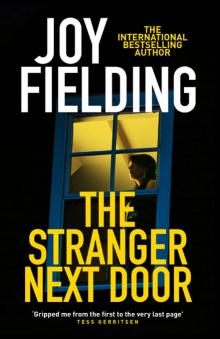 The Stranger Next Door
The Stranger Next Door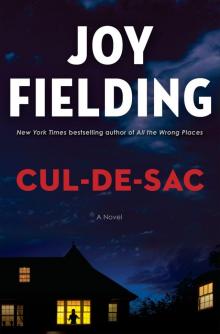 Cul-de-sac
Cul-de-sac The Final Act
The Final Act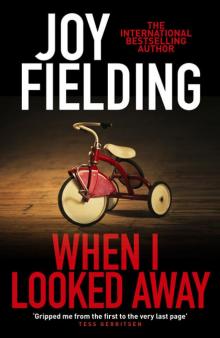 When I Looked Away
When I Looked Away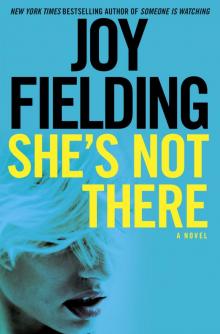 She's Not There
She's Not There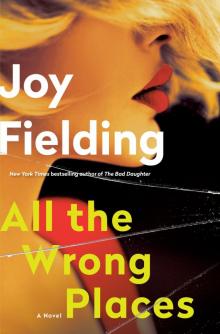 All the Wrong Places
All the Wrong Places Now You See Her
Now You See Her Don't Cry Now
Don't Cry Now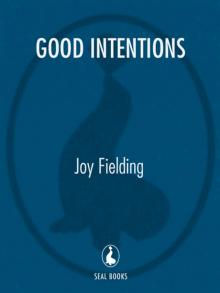 Good Intentions
Good Intentions Still Life
Still Life Lost
Lost The First Time
The First Time Whispers and Lies
Whispers and Lies The Other Woman
The Other Woman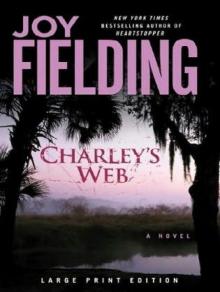 Charley's Web
Charley's Web Mad River Road
Mad River Road Puppet
Puppet Life Penalty
Life Penalty The Wild Zone
The Wild Zone Home Invasion
Home Invasion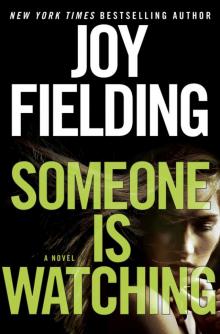 Someone Is Watching
Someone Is Watching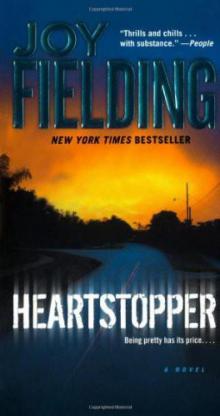 Heartstopper
Heartstopper See Jane Run
See Jane Run The Bad Daughter
The Bad Daughter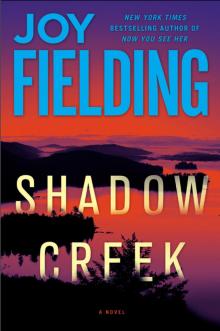 Shadow Creek
Shadow Creek Missing Pieces
Missing Pieces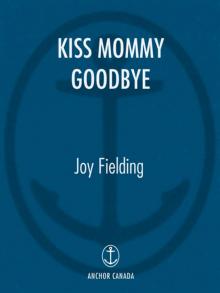 Kiss Mommy Goodbye
Kiss Mommy Goodbye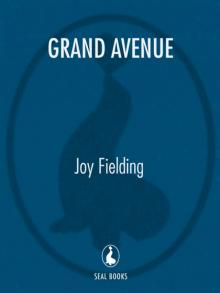 Grand Avenue
Grand Avenue